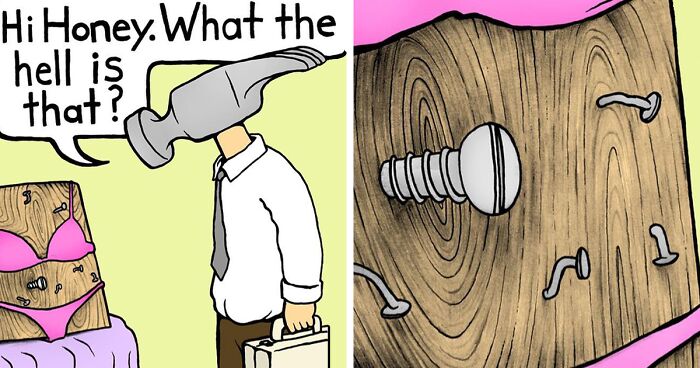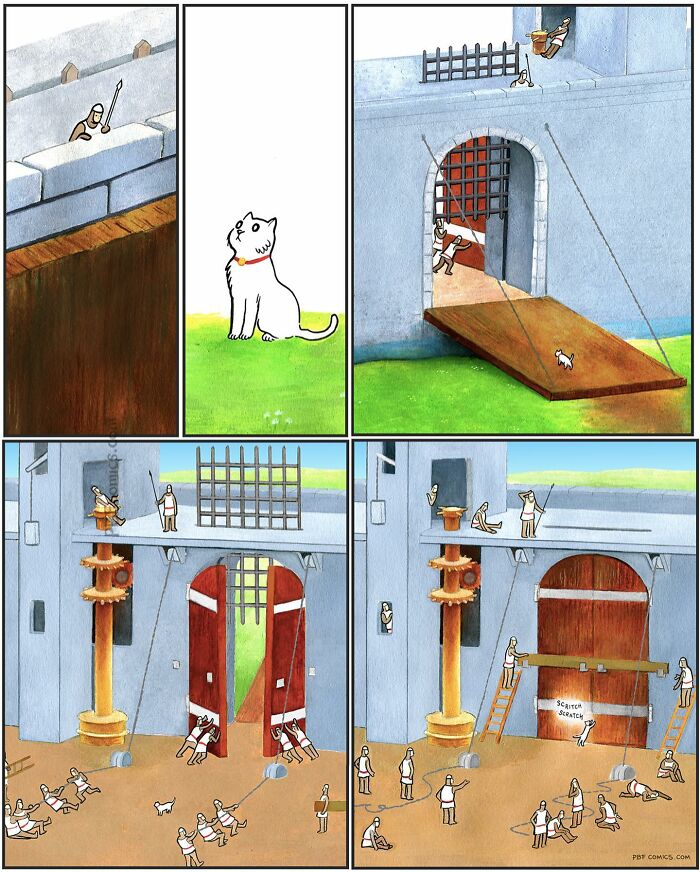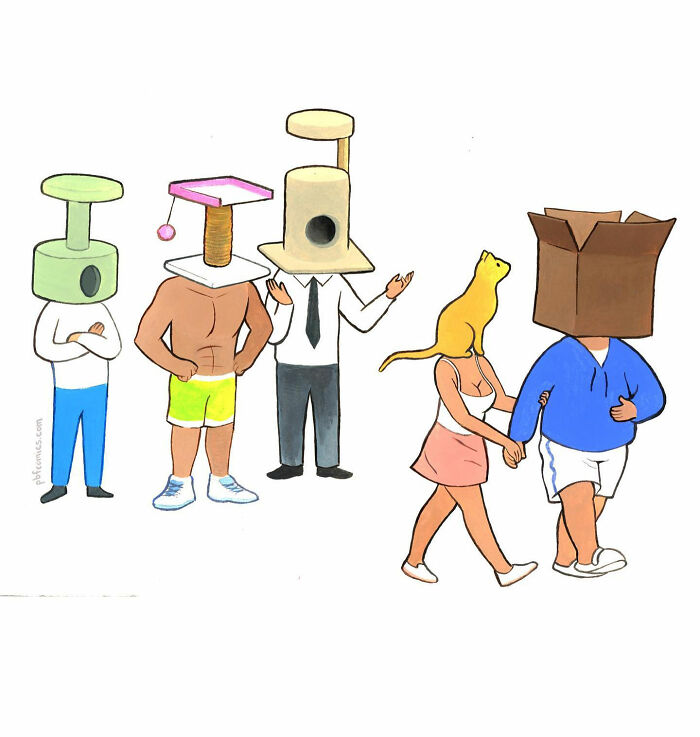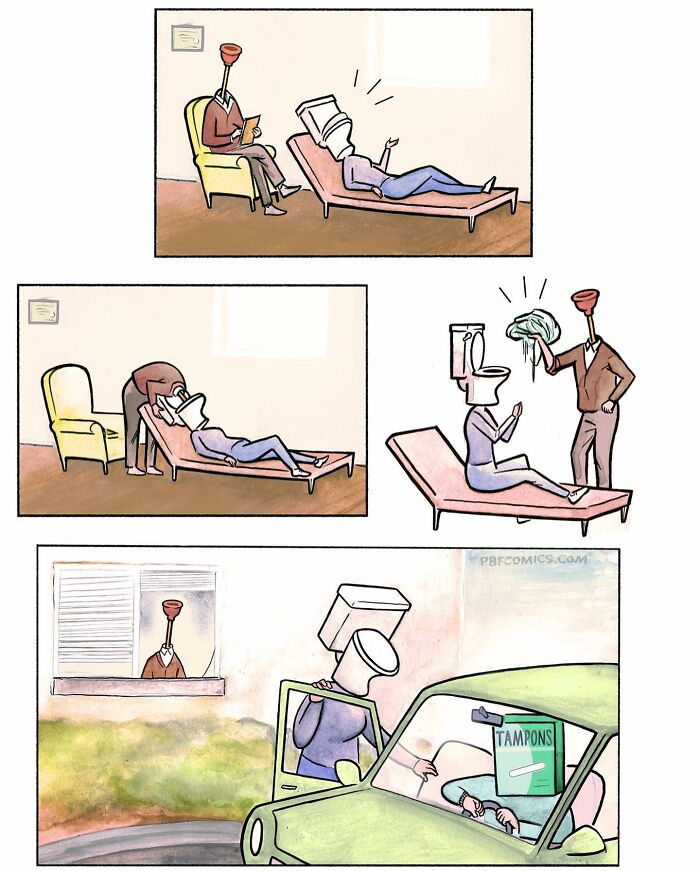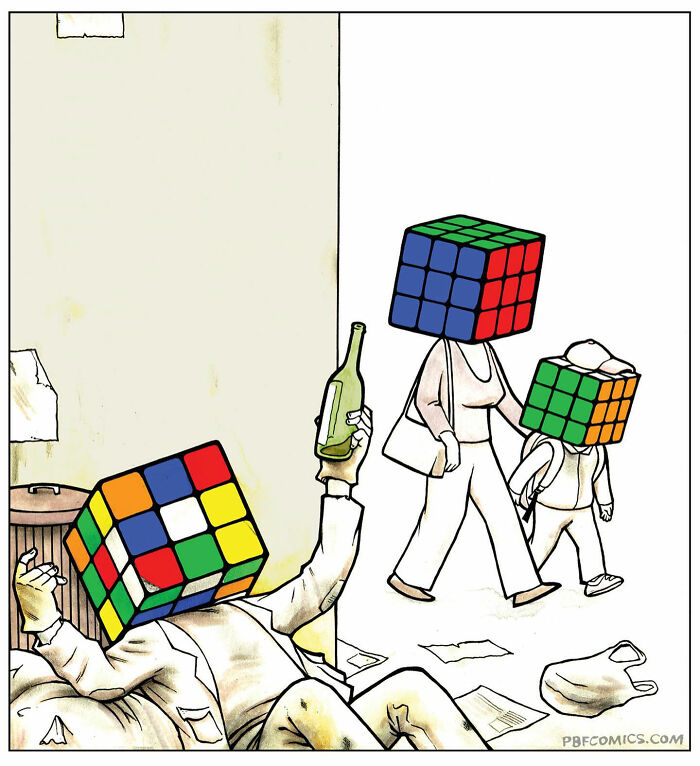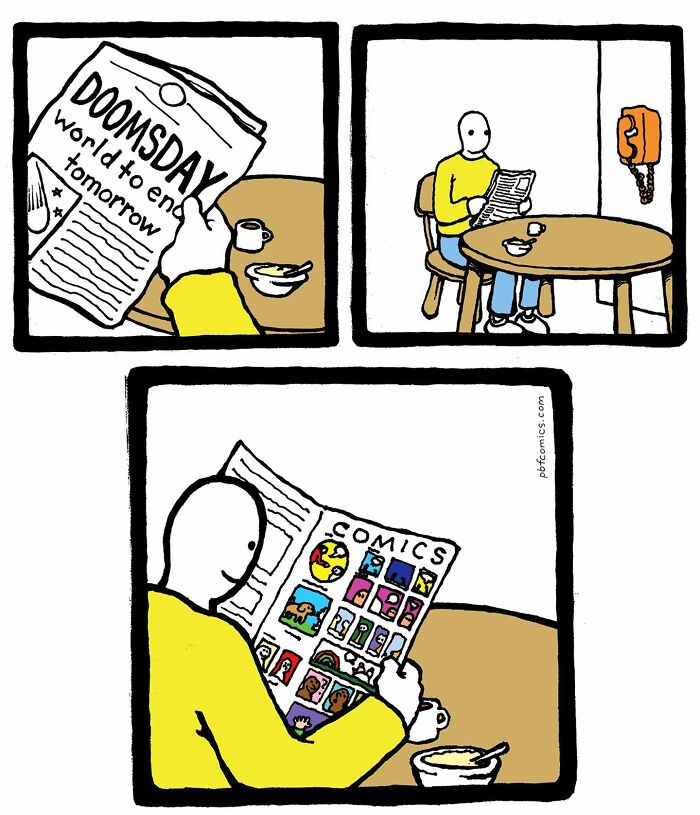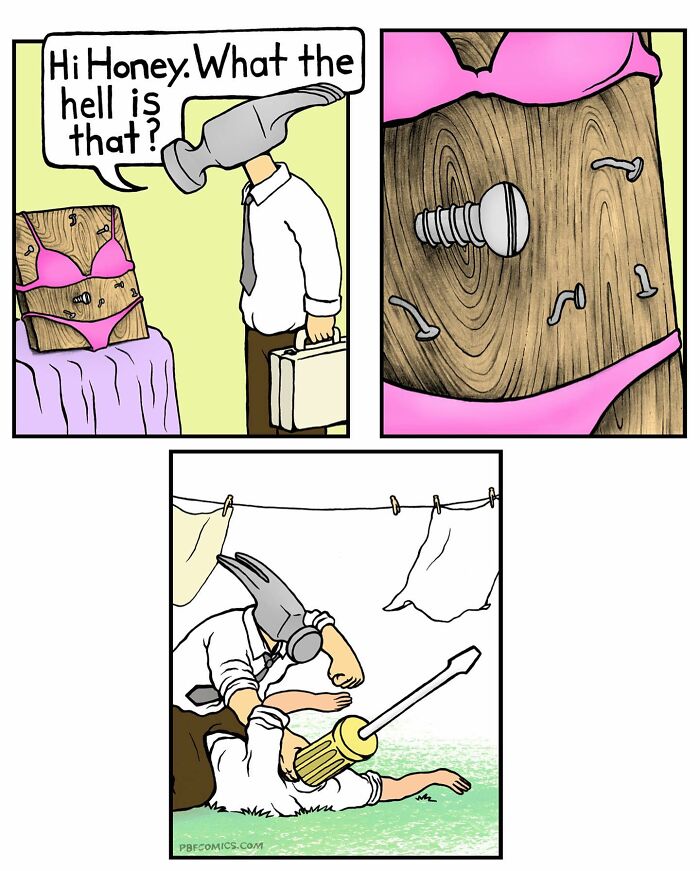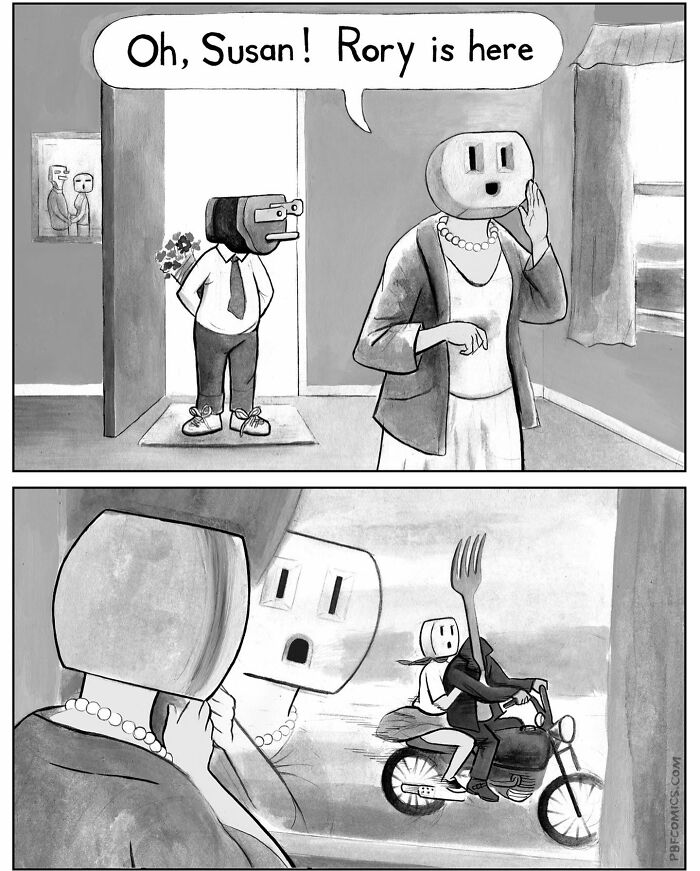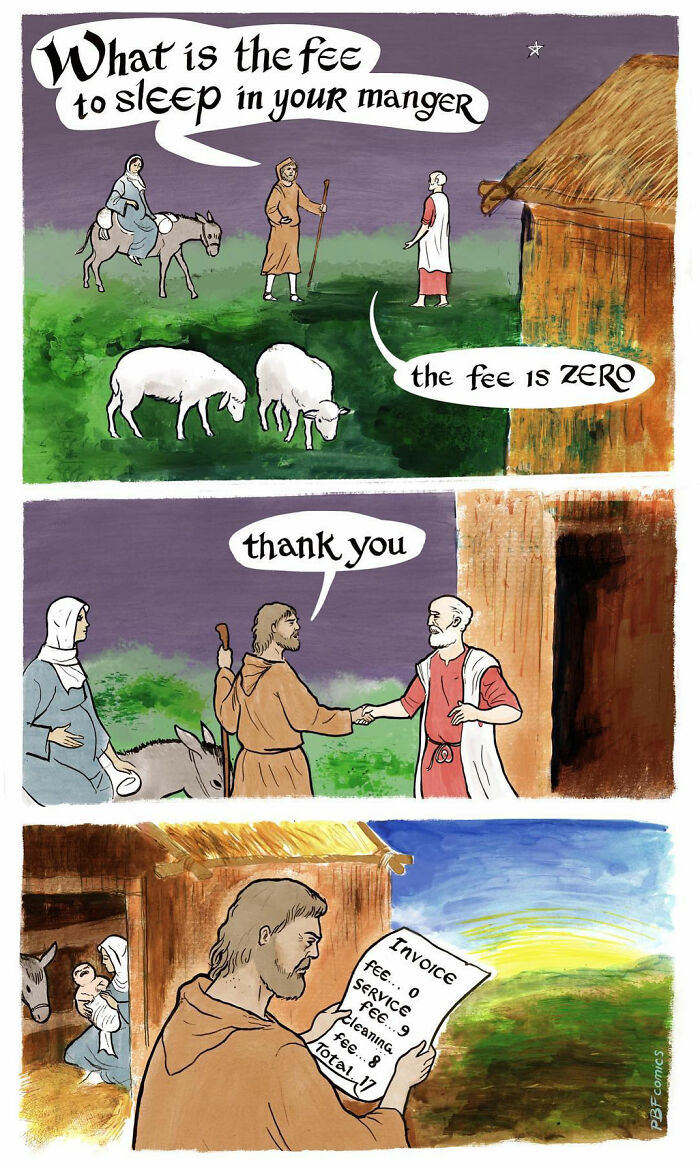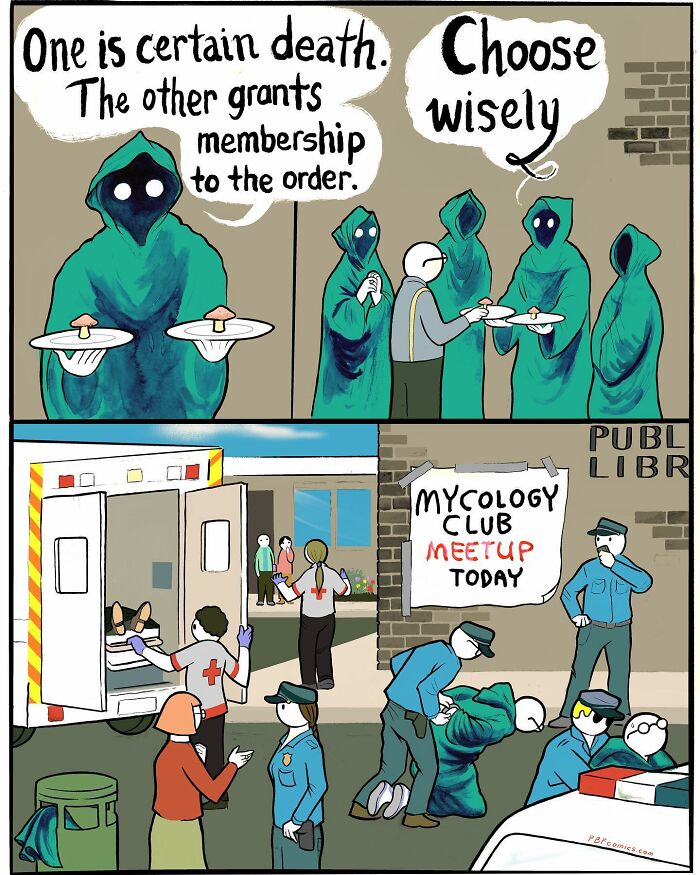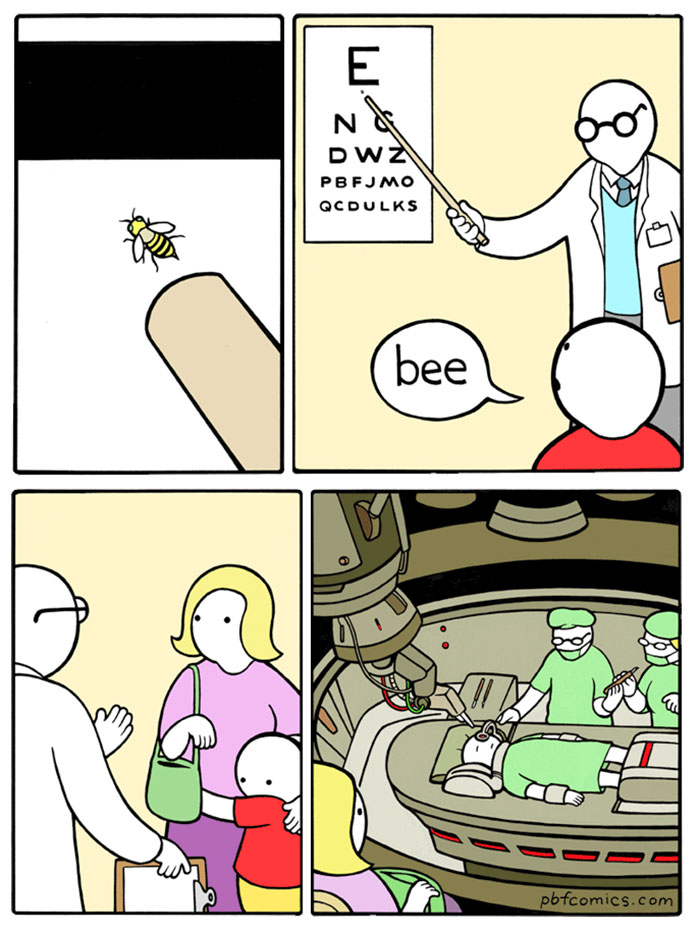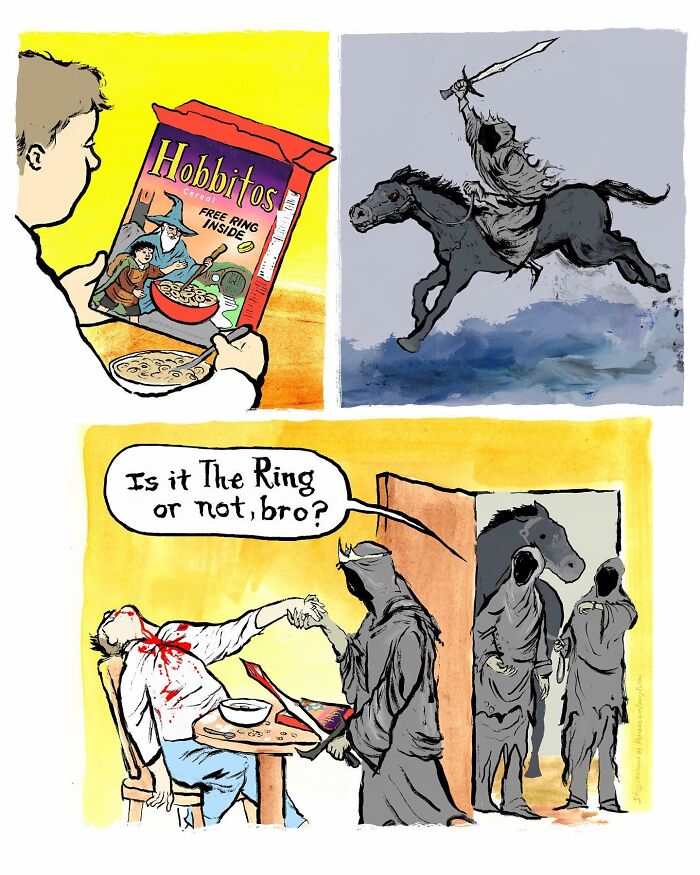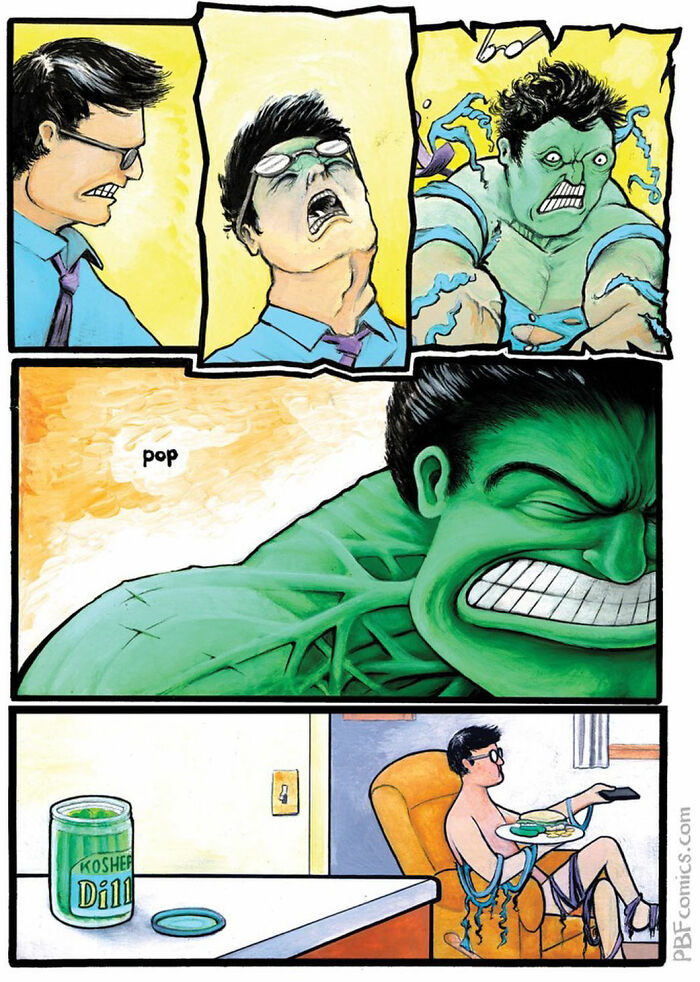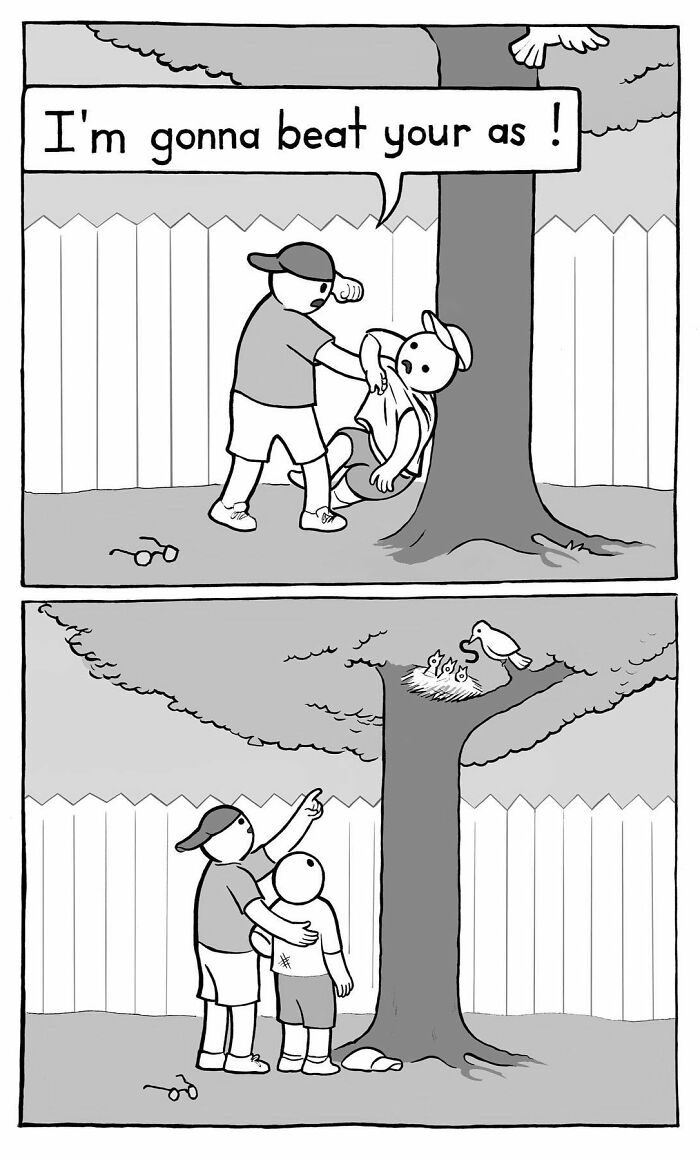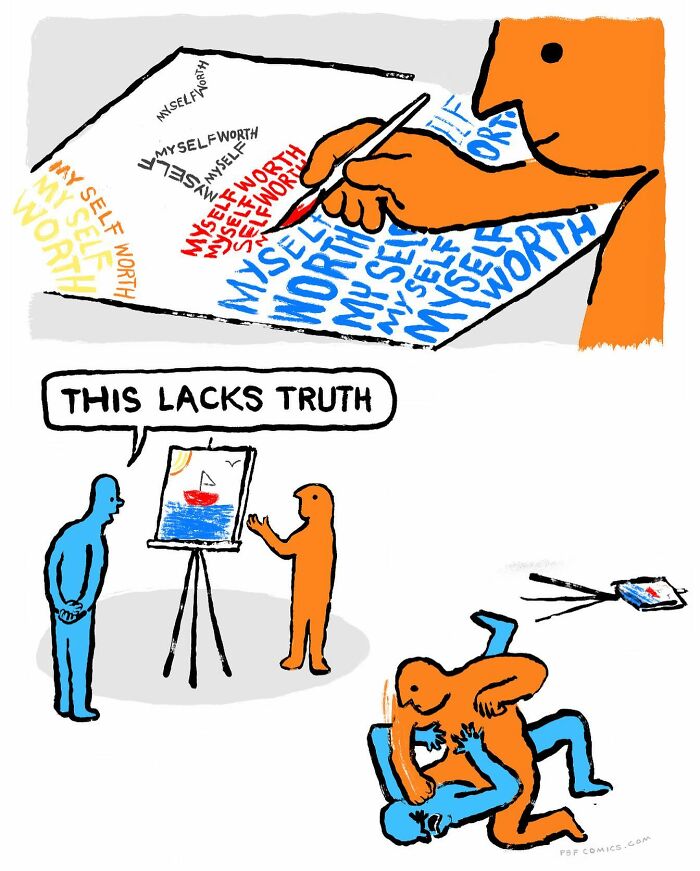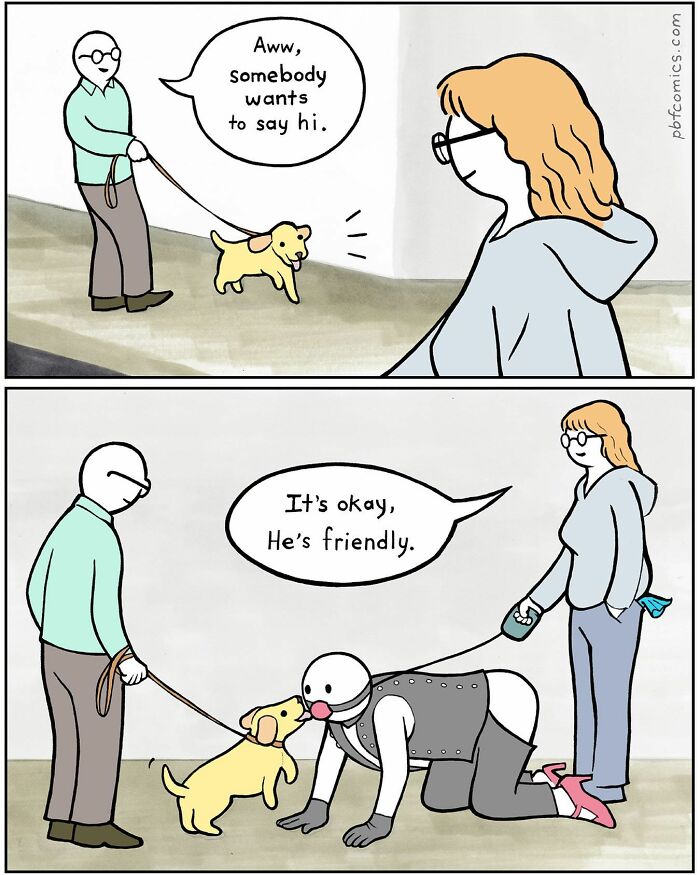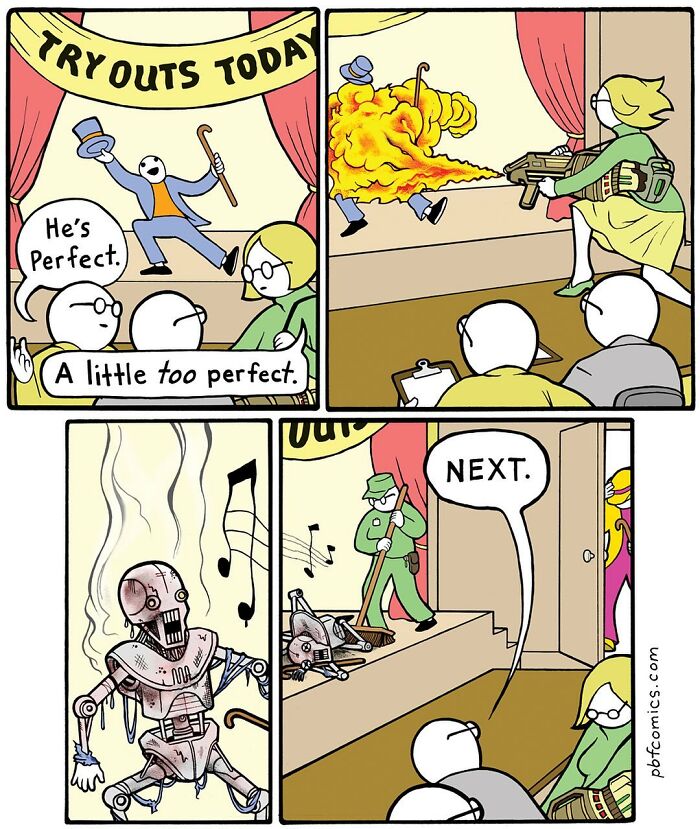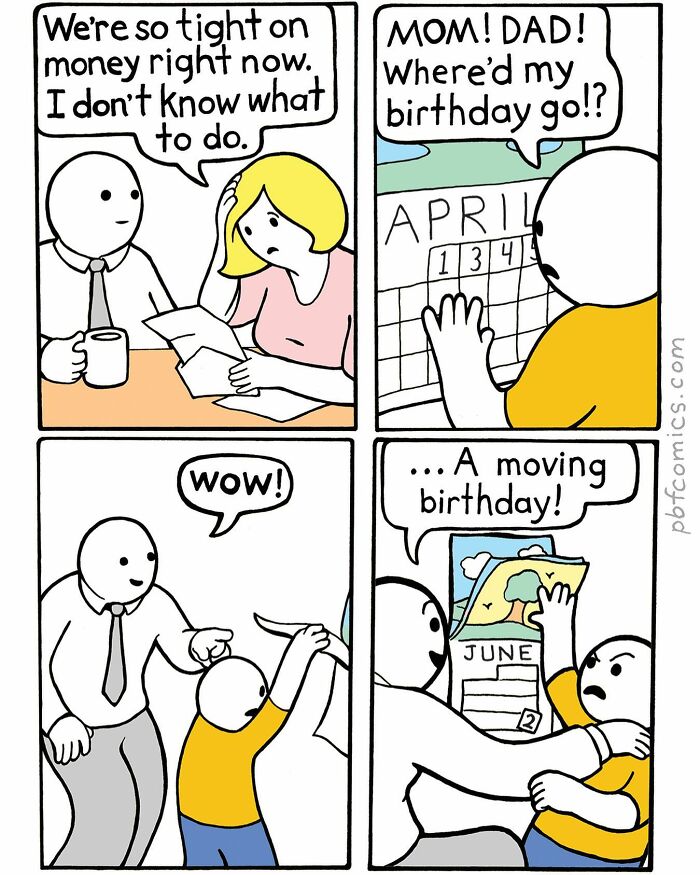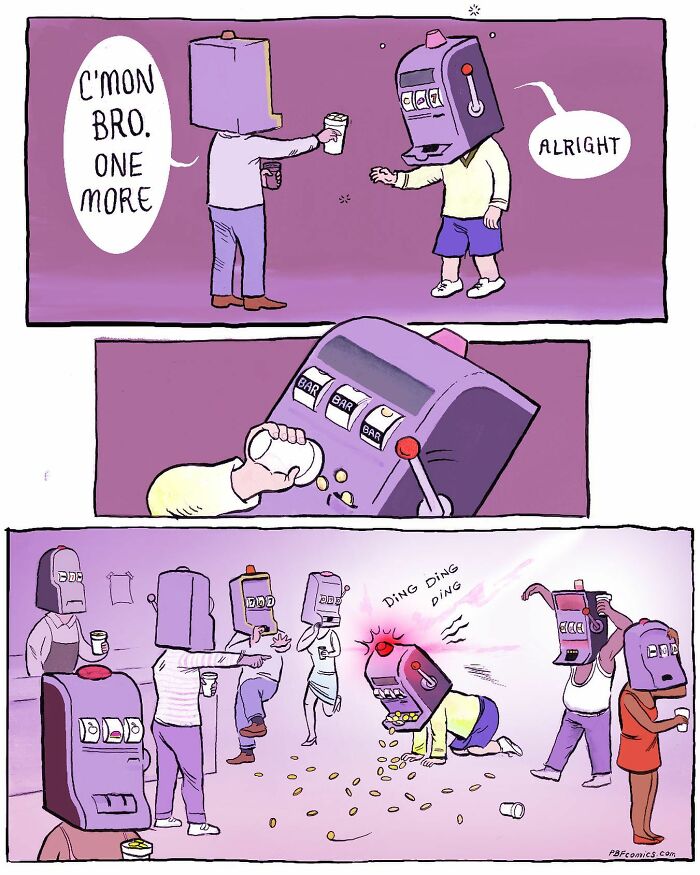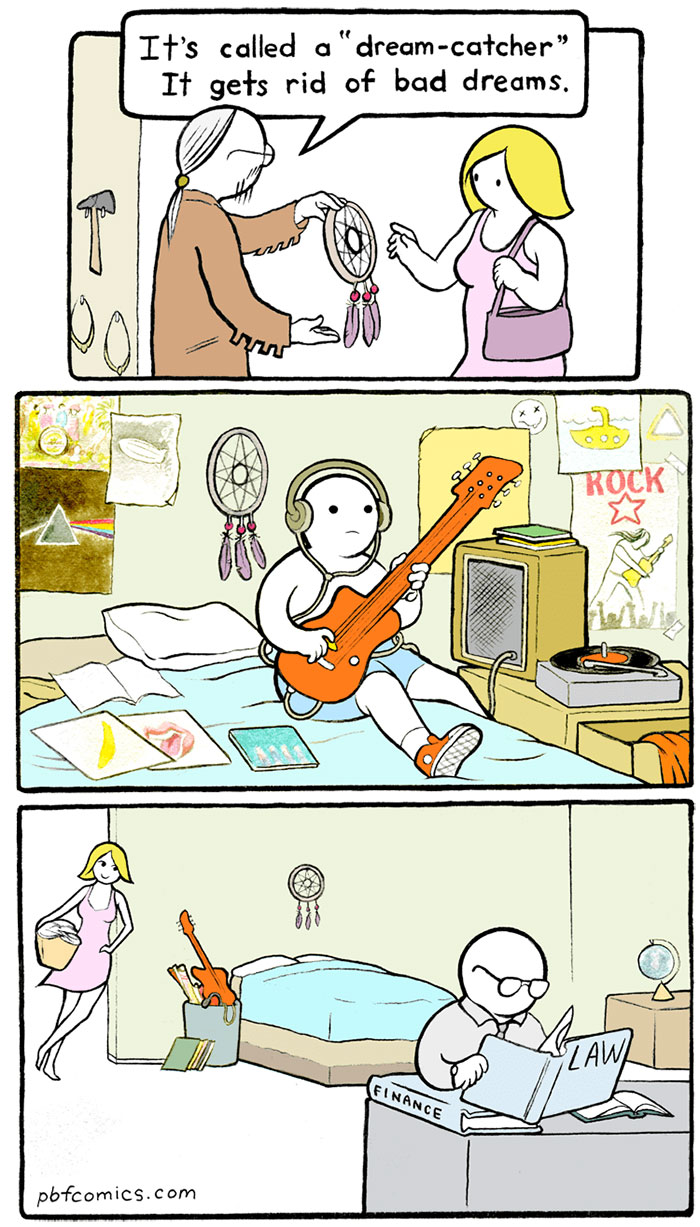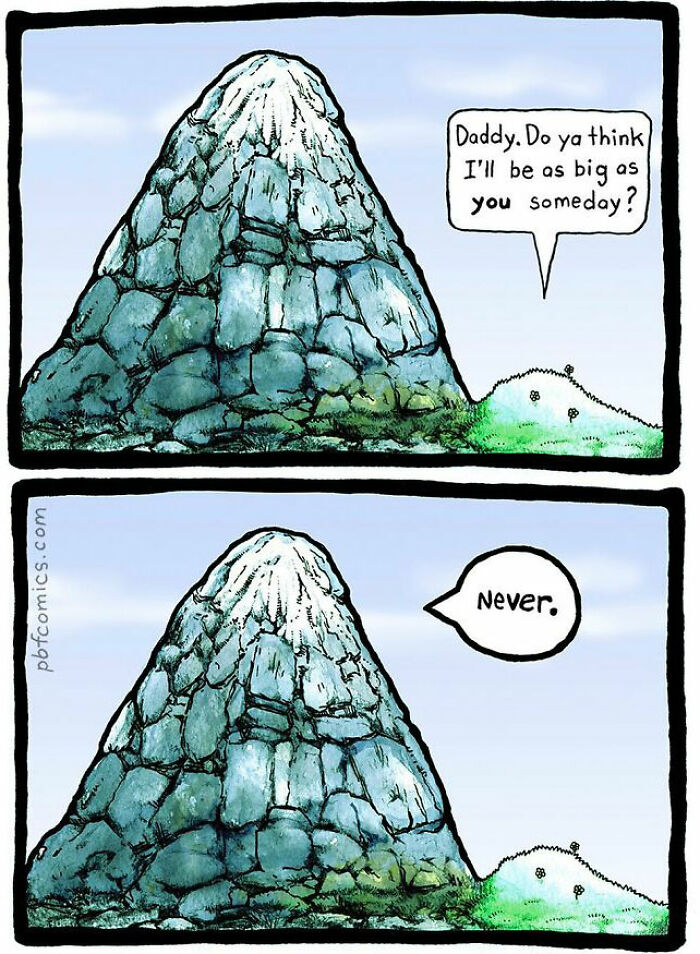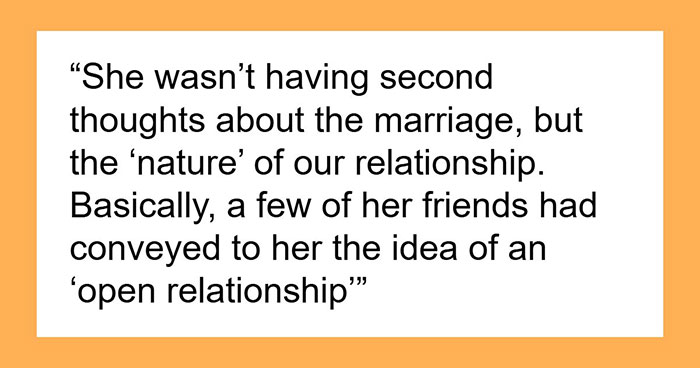Get ready to dive into the wacky and captivating world of "Perry Bible Fellowship" (PBF) comics! If you're not already familiar with the genius of Nicholas Gurewitch, you're in for a treat. For over two decades, PBF has been serving up a blend of whimsical, dark, and downright unexpected humor. From university newspaper origins to becoming a beloved internet sensation, Gurewitch's knack for tackling serious and controversial topics with a twist of grim comedy has earned PBF recognition from various comic award committees.
So buckle up for a rollercoaster of laughs, surprises, and maybe a touch of guilt-inducing humor. Scroll down to explore the humorous cartoons from the legendary Perry Bible Fellowship!
More info: Instagram | pbfcomics.com | twitter.com | Facebook | youtube.com | patreon.com
This post may include affiliate links.
The "Perry Bible Fellowship" originated as a self-syndicated webcomic and gained popularity for its dark humor and distinctive art style. Gurewitch began creating comics for his college's student newspaper after a short stint trying to be a journalist for the same paper. The artist told Bored Panda that his motivation is to make people see things in a new way. He has a fascination with sharing confusion, as he believes it sparks wonder and curiosity in people's minds.
This one's my favorite. Just can't help some people who go right back to the abuse.
PBF is known for its edgy and morbid humor, which has led to controversy and discussions over the years. The comics often explore dark and unconventional themes, and their content may not be suitable for all audiences. While some appreciate its unique and daring approach to humor, others may find it offensive or controversial.
According to Gurewitch, it's interesting how the intended meaning or personality in a creative work can sometimes be misunderstood, but people have the right to interpret it in their own way. But he finds it funny that many perceive a comic as just being provocative without much thought behind it. The artist personally finds it amusing because, when he enjoys his own comics, he can see reflections of his thoughts, things on his mind, or discussions with friends.
The artist shared that usually, ideas for comics come from a random doodle or stroke on a sketchpad. Other times, friends might share ideas. "Sometimes an old sketch will present itself with new opportunities much later on."

 Dark Mode
Dark Mode 

 No fees, cancel anytime
No fees, cancel anytime 






